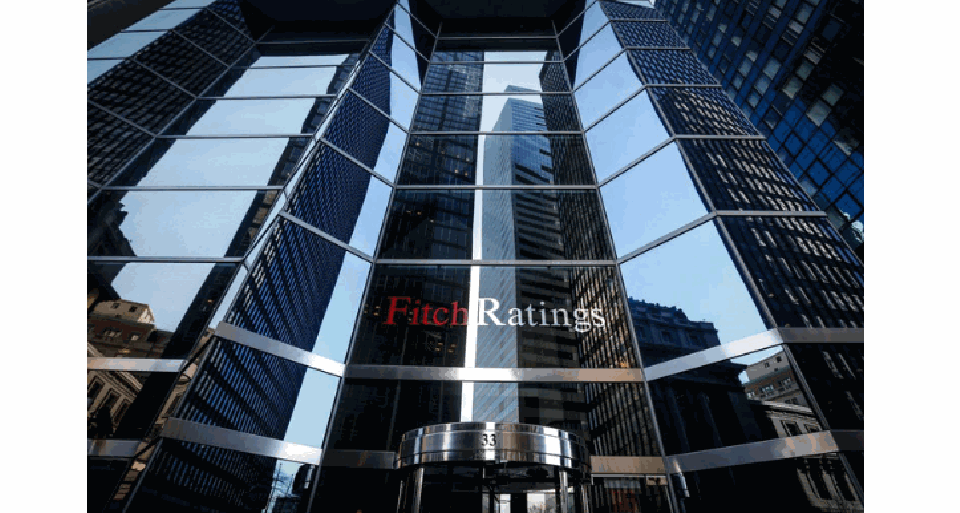With an unchanged stable outlook, Fitch Ratings has confirmed Hungary's foreign currency-denominated long-term public debt obligations at the "BBB" level, with an investment recommendation. According to the Minister of Finance Mihály Varga, it is favorable that the credit rating agency confirmed the classification of our country despite the war crisis and European recession fears.
Among other things, the international credit rating agency justified the decision announced in London on Friday night with the opinion that the structural indicators of the Hungarian economy are strong compared to the structural indicators of other countries with a similar classification.
Fitch also emphasized that the past period was characterized by stable economic growth, and that this was mainly driven by investments. According to the analysis, the stable outlook for the Hungarian sovereign debt rating nevertheless reflects that Fitch expects sustained economic growth, a gradual improvement in the external balance situation, and budget consolidation, and expects that as a result of all this, the public debt ratio will also improve in the next three years .
It is good that Fitch Ratings has confirmed Hungary's rating despite the war crisis and European recession fears, and continues to recommend Hungary for investment with a stable outlook, Mihály Varga wrote on his Facebook page this morning.
The Minister of Finance reminded that in recent months the prospects of the Czech Republic and Slovakia were also worsened by the credit rating agencies.
"According to Fitch Ratings, Hungary's growth capabilities are strong even compared to countries with a similar classification, they expect a growth of over 5 percent in the Hungarian economy for the whole year," Mihály Varga added.
As he emphasized, it is thanks to the work of the past decade that all three major credit rating agencies recommend Hungary for investment after the pandemic and during the war.
"Our goal is to preserve the growth of the Hungarian economy even during the war crisis," Mihály Varga pointed out.
The credit rating agency also stated that it expects Hungary to reach an agreement with the European Commission on the Hungarian recovery plan by the end of September, and thus be able to access the financing of the recovery fund announced as Next Generation EU (NGEU) to mitigate the economic effects of the coronavirus epidemic.
According to Fitch Ratings, the ongoing negotiations have become more constructive in recent weeks, and the credit rating agency expects that the Hungarian government will be willing to make further concessions in the area of public procurement and anti-corruption procedures.
The company mentions the dependence on Russian energy carriers as one of the main risks, emphasizing that Hungary imports 80 percent of its crude oil needs and 95 percent of its natural gas needs from Russia.
Although Fitch Ratings does not expect that natural gas shipments from Russia will stop completely, if extensive energy carrier rationing were to be introduced in the European Union, it would probably cause a recession in Hungary and much higher inflation than the current one, according to the credit rating agency's analysis in London.
Fitch expects a 5.1 percent increase in Hungary's gross domestic product (GDP) for this year, primarily based on the strong momentum of previous dynamics and the robust domestic demand typical of the first half of this year. The company points out that the current median annual GDP growth rate for partner economies rated "BBB" sovereign is 4.4 percent.
At the same time, the credit rating agency expects growth in the Hungarian economy to slow to 2.4 percent in 2023. The average rate of inflation this year will be 11.3 percent. At the same time, Fitch Ratings announced that, according to its calculations, the upper official price limits for utility services, fuels and certain foodstuffs will reduce the inflation rate by 4.3 percentage points in 2022 and 0.7 percentage points in 2023.
The company expects that the official price limits on fuel and food will be gradually abolished by the government.
According to Fitch Ratings' forecast, next year's average inflation in Hungary will slow down to 7.6 percent. However, according to the credit rating agency's expectations, the Magyar Nemzeti Bank (MNB) will continue its rate hike cycle in the coming months, and its benchmark interest rate will reach 12.25 percent by the end of the year.
Fitch predicts a public budget deficit of 3.9 percent next year. According to the credit rating agency, the national debt ratio is stagnant at around 77 percent of the gross domestic product this year, but will decrease to around 70 percent by 2024.
The high gross debt stock compared to GDP is one of the main weaknesses of the Hungarian sovereign rating; the median of the "BBB" rated field is currently 55 percent, Fitch Ratings emphasizes in its analysis.
Source: Magyar Hírlap/MTI
Image: Anadolu Agency












